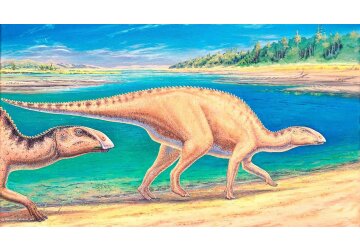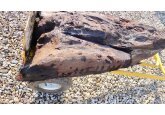
Never seen herbivore! This dinosaur roamed Earth 72 million years ago - we now know what they look like
The find follows an almost decade-long investigation after an expedition in 2013 uncovered fragments of yellowish bones at the bottom of a hillside close to the Torres del Paine national park in Patagonia.
Scientists have discovered the fossilised remains of a new species of duck-billed dinosaur that roamed Chile 72 million years ago.
Dubbed Gonkoken nanoi, the plant-eating creature weighed up to a tonne and could grow to 4m (13ft) in length, according to research published in Science Advances.
In 2013, an expedition led by the Chilean Antarctic Institute (INACH) uncovered fragments of yellowish bones at the bottom of a hillside close to the Torres del Paine national park in Patagonia.
Jhonathan Alarcon, the main author of the study, said: "At first, we thought it was from the same group as other South American hadrosaurs, but as the study progressed, we realised that it was something unprecedented."
He said researchers had to delicately extract more than 100 pieces of bone, taking care not to damage others in the process.
Following this, palaeontologists had to make sure the remains belonged to the same species and check them with existing research to verify that it was a new kind of dinosaur.
Another study author, Alexander Vargas, said: "[The] Gonkoken nanoi is not an advanced duck-billed dinosaur, but rather an older transitional duck-billed lineage - an evolutionary link to advanced forms."
news.sky.com







